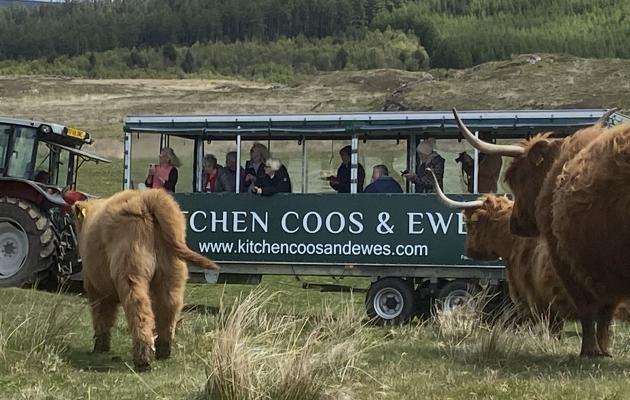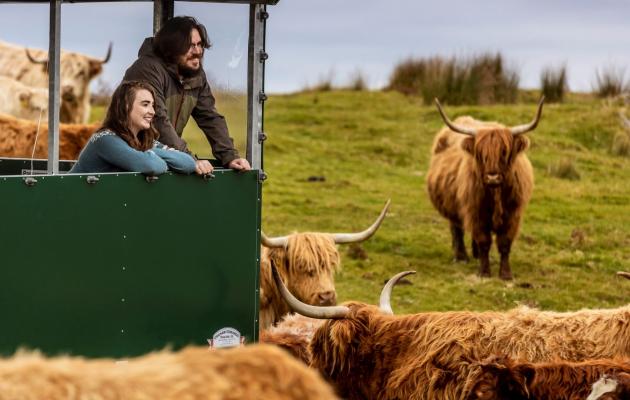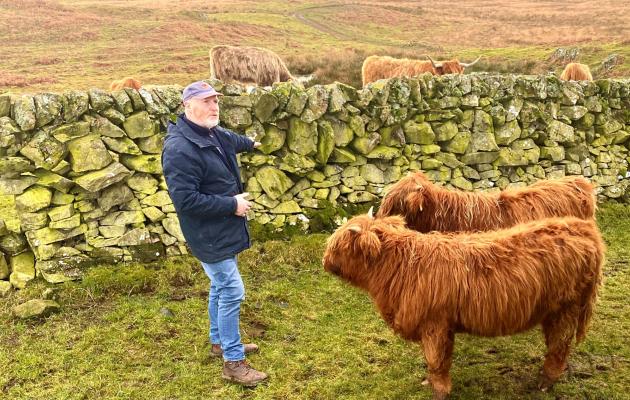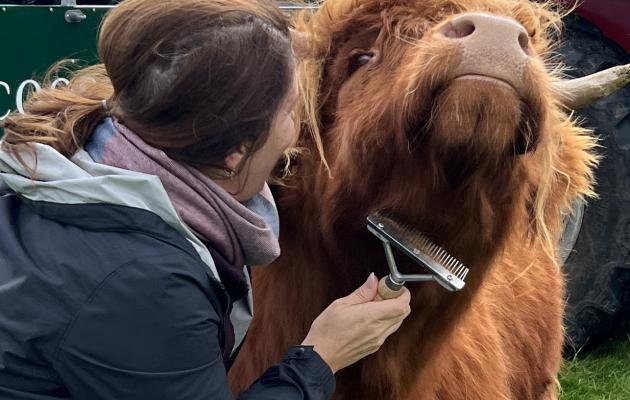Kitchen Coos & Ewes is run by Neale and Janet McQuistin, of Airyolland Farm, and we will be your hosts during your visit.
Over the past decade we’ve changed the way we farm in response to changes in farming policy and also growing environmental concerns. In short, we’ve moved to a less intensive and more sustainable farming system; a style of farming that’s perfectly suited to Scotland’s southern uplands.
Highland cattle now graze the hills, and the grazing action of this beautiful native breed of cattle has many benefits, including supporting wildlife on our farm. We also stock one of the UK’s newest breeds of sheep, Beltex, and they make very efficient use of the grass that grows in the in-bye fields. That mix of ancient and modern breeds ensures all parts of the farm are being used to best effect.
Our farm is situated in the Galloway and Southern Ayrshire UNESCO Biosphere which has been recognised internationally as a world class environment for people and nature. The UNESCO Biosphere designation is in recognition of the fantastic array of landscapes, wildlife, cultural heritage and learning opportunities that south west Scotland offers for communities, businesses and visitors to experience in a sustainable way.
We are proud to be part of this amazing initiative and we are committed to working with others towards achieving the shared aims and ambitions for this fantastic part of the world. The farm, the livestock and the environmental measures we carry out are all a very good fit with the overall aims of the Biosphere.
Providing tourism experiences is something that’s quite new for us, but it’s an important part of supporting our local community. Encouraging tourism to our rural corner of Scotland is one of the aims of the New Luce Community Trust, and we are pleased to play a role in putting our wee community on Scotland’s tourism map.
Every visit to Kitchen Coos & Ewes also helps us to support rural skills. We are delighted to provide free school visits to Stranraer Academy Rural Skills classes the opportunity to connect with their local food and farming heritage.




